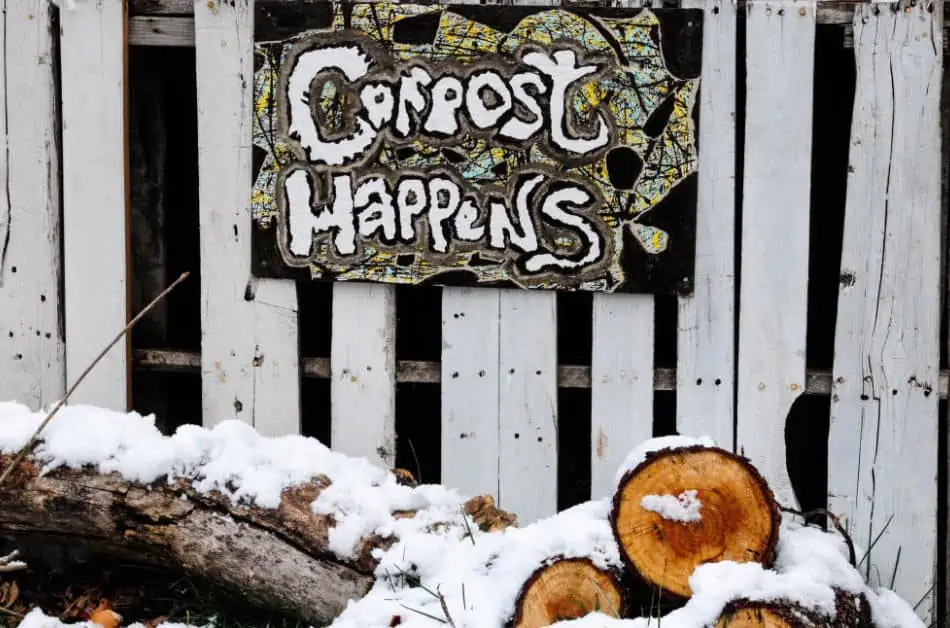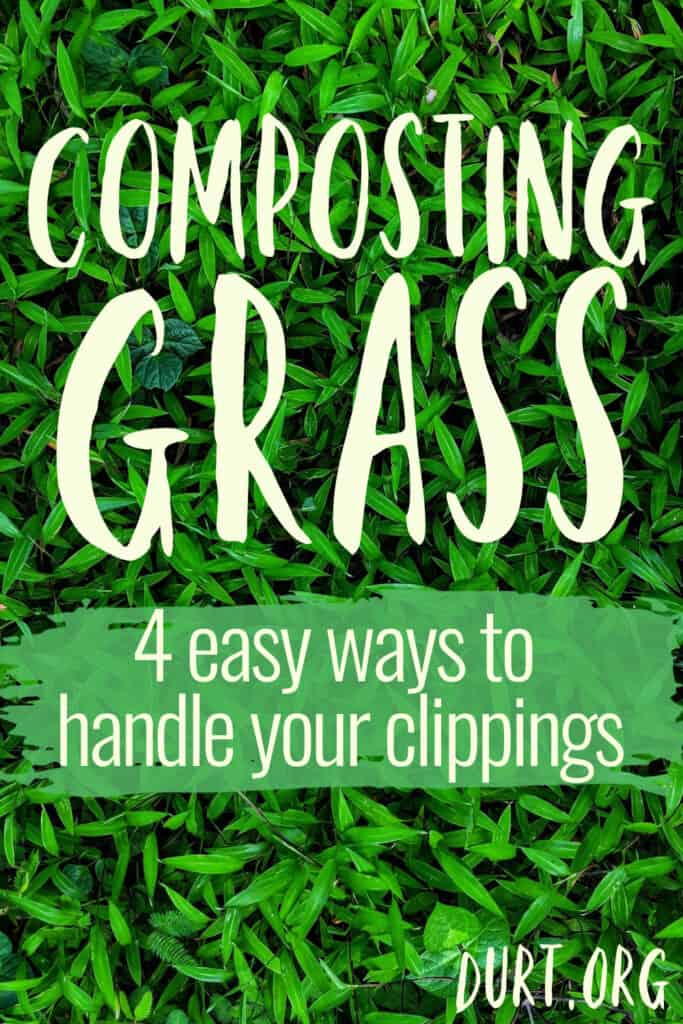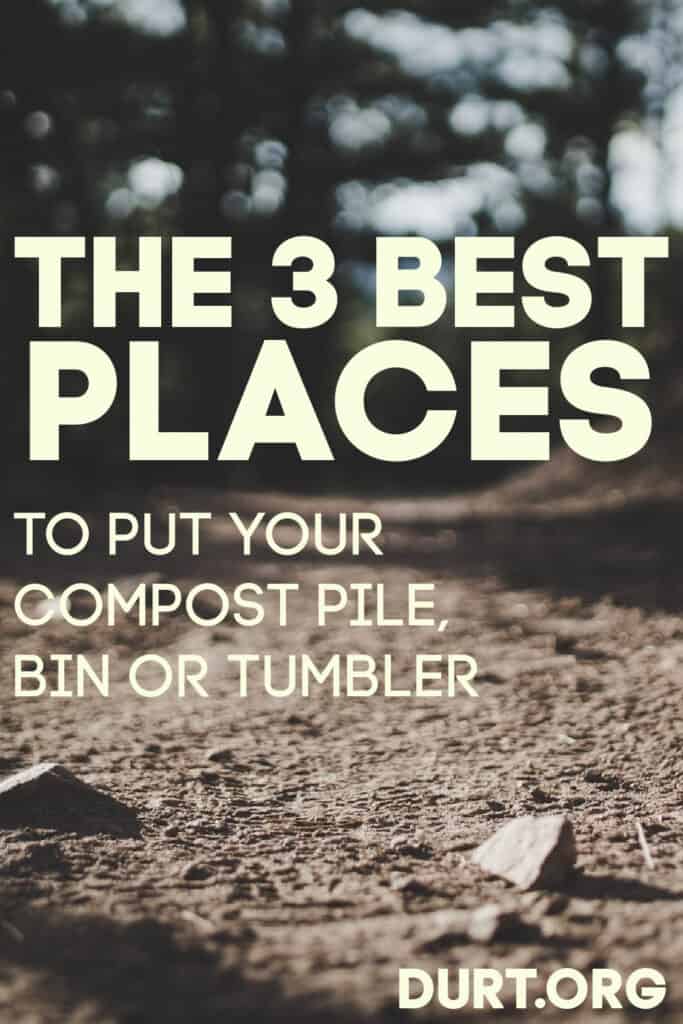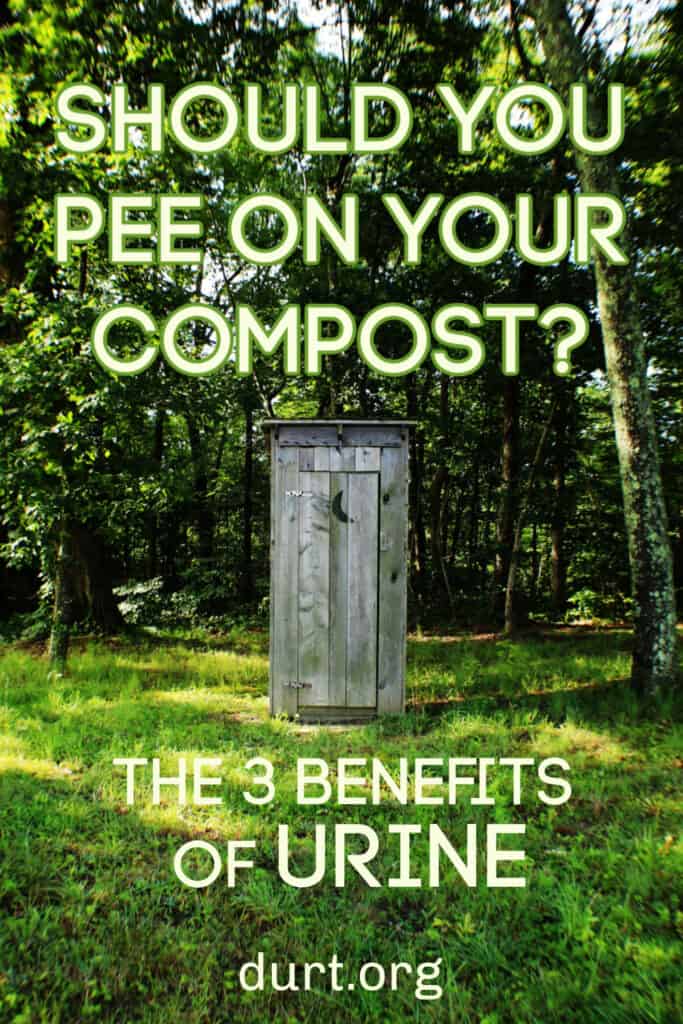As an Amazon Associate I earn from qualifying purchases.
Is composting hard? Yes, if you want it to be.
Getting started with composting was a major leap for me. For some reason, I had built it up in my head to the point that I didn’t make the jump…for years. I always thought that I needed a tumbler, a three-bin pile, an aerating system, etc. Looking back this seems to be ridiculous but I remember thinking that I would just wait until I had more time (eg I was retired) so I could figure it out properly and do it right.
That was dumb. Composting isn’t hard. Just think of a forest floor, it produces tons and tons of compost every year and, even though the trees are very experienced at composting, you’re probably smarter than a tree.
Composting can be as simple or as complex as you want it to be. Decomposition is a natural process that occurs everywhere. Simply stacking up compostable material in your yard will result in compost within a year or two. Optimizing and caring for your pile, while not necessary, can decrease this time to 4-6 months.
So, if you don’t have the time to take the temperature of you pile, turn it, water it regularly, just pile up some greens and browns and wait for them to break down. It doesn’t have to be anything more than that if you don’t want it to be.
What Makes Composting Hard?
While composting isn’t hard, the amount of information available on this site and the rest of the internet can be intimidating. So let’s break down each of the issues that make composting hard for people in the simplest terms possible.
Remember, none of these are strictly necessary and will simply speed up your pile.
1. The Carbon/Nitrogen Ratio
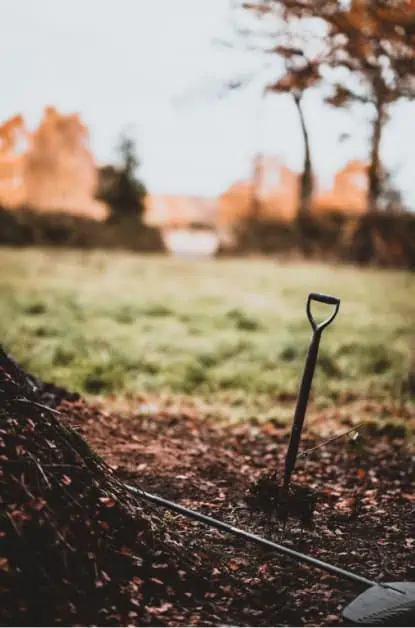
The correct ratio of carbon and nitrogen in your pile is meant to optimally feed the microbes that are breaking things down. If you have too much carbon (brown material such as leaves and yard waste) your pile dries out and slows down. If you have too much nitrogen (green material such as grass clippings and food scraps) then your pile has the potential to get wet and smelly.
Having your ratio off is not that big of a deal. In general, here’s what you should do: add browns to greens in a 2:1 ratio (by volume). So for every bucket of green scraps you add, dump in two buckets of browns. Since composting is a slow process, if things look a little off, just dump in either browns or greens (depending on the issue).
For all the fuss made about it by people wanting the fastest compost possible, it’s pretty hard to mess up your ratios and it’s never an unfixable mess. If you’re nervous, err on the side of too many browns. Going crazy about your ratios is a great way to make composting hard but, the truth is, you can’t actually know the exact amount of carbon/nitrogen in anything so trying to control it minutely is futile.
2. Aerating Your Pile
Unless you want to expedite your composting and try to heat up your pile, don’t worry about aerating it. If, however, you have an extra 10 minutes a week, it can speed up the process significantly.
The easiest/most common method of aerating your pile is simply to turn it over so oxygen can get inside. Just grab a shovel or pitchfork and flip over/mix up your pile. While some people mix their pile daily or even multiple times a day, it isn’t necessary. Every week or two (or whenever you have time) is enough.
Another way to ensure that you have sufficient oxygen in your pile is to start your pile on top of a pallet or some branches. Space underneath will allow oxygen to flow through, feeding the microbes.
3. Watering Your Pile
When it comes to keeping your pile moist, you don’t have to. But your microbes will like it. Everyone has the same guideline: keep your pile like a wrung-out sponge. I don’t even know what that means and you probably don’t want to be fondling your compost pile.
Here’s the simplest way I keep track of my pile’s moisture: if it looks dry I water it. Easy.
What does it mean if compost looks dry? Well, you can expect the top to look a bit dry. But I just look at my pile and think if I could imagine mushrooms growing on it. If it’s too dry to mushrooms it’s probably too dry for my microbes. Keep it looking damp, like the underside of a forest log.
It’s pretty hard to mess this up as well, I just spray my pile down with a hose when I turn it. If I get it too wet I just wait for it to dry out for a few days.
4. Knowing What to Compost
If there is anything that could make composting hard, it’s knowing exactly what to put in your pile. The truth is, pretty much anything is compostable. There are, however, five reasons why people say to not put certain things in your compost: they stink, they take forever to break down, they mess with your compost’s acidity/carbon balance, they carry pathogens, or they attract predators.
Here’s how to keep it simple. If it came from an animal (meat, dairy, poop, etc.) don’t compost it. If it is made from an animal product (yogurt) don’t compost it. You can things with small amounts of animal products in them (such as bread) but stay away from things like meat pies. In general, plants are what is compostable. Food scraps, lawn/yard clippings, etc. Stick to those and you won’t have any issues. Does that sound like composting is hard? Not a bit.
If Composting Is Hard, Is It Still Worth It?
Regardless of how hard composting is (or how easy) the reality is that it does take some amount of time or at least a deviation in your schedule. When you have your pile established it doesn’t take any more effort to throw stuff onto your pile instead of into the garbage. But it is worth starting? Well, that depends.
Composting isn’t hard at all when you compare the effort required to the laundry list of benefits. Check them out:
- Reduced waste going to landfill
- Reduced methane
- soil ammendment
So, even if you don’t have a use for your finished compost, it can be a great way to reduce your effect on the environment. In addition, finished compost is the easiest thing in the world to give away or sell and people in your community will be over the moon to add it to their own gardens.
If composting sounds a bit too hard for you (or you just don’t care to do it) you can get all the same benefits by checking to see if your town has an organic waste program. It’s even easier to compost if all you do is throw everything in a can and wait for them to haul it away every week.
What Is The Easiest Way To Get Started Composting?
The main thing that makes composting hard is the number of people and articles telling you exactly how much stuff you need to get going. So, even though we have a list of our favorite composting tools, let’s talk about the things that you absolutely have to have to get going.
If you want to get started, the only thing you actually need is a spot to put your compost. You don’t need a tumbler, you don’t need a bin or a pitchfork or a compost starter.
If you want to start, you can make a simple container to hold your compost out of an old trashcan, some chicken wire, or a couple of pallets nailed together. Anything that will allow your compost to stack more vertically instead of being spread out will work.
If that’s too hard for you, here’s an even simpler idea. Take your food scraps and go bury them in your garden. They will break down on their own and add nutrients to your soil. While this is less efficient, it’s as easy as can be and is the method that mother nature has been using for millions of years.
So, Is Composting Actually Hard?
Composting doesn’t have to be hard if you don’t want it to be and it has so many amazing benefits. Just start saving your scraps today and find a spot to throw them tomorrow. Composting can take several months to finish so if you don’t get it quite right today, tomorrow, or next week you’ll have lots of time to course-correct. Happy composting!

